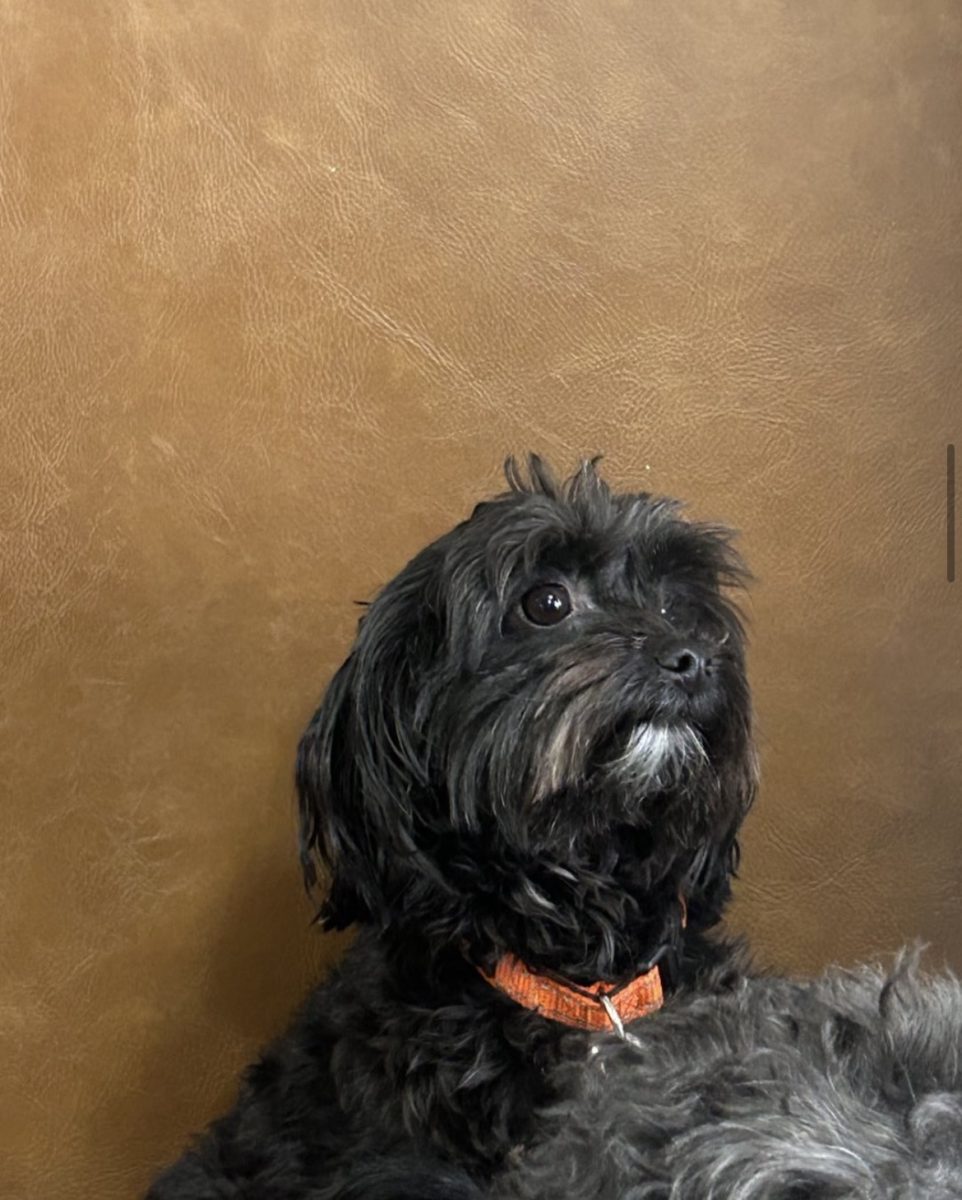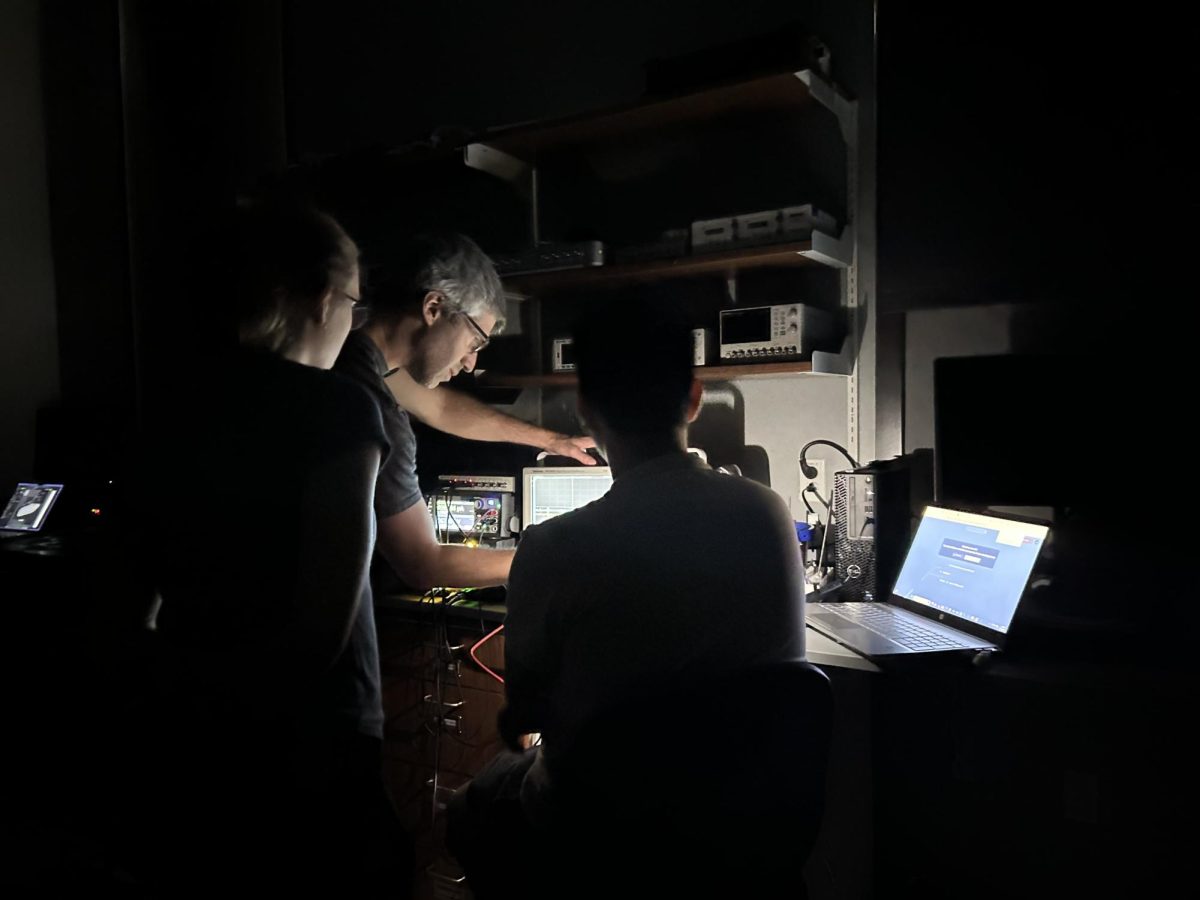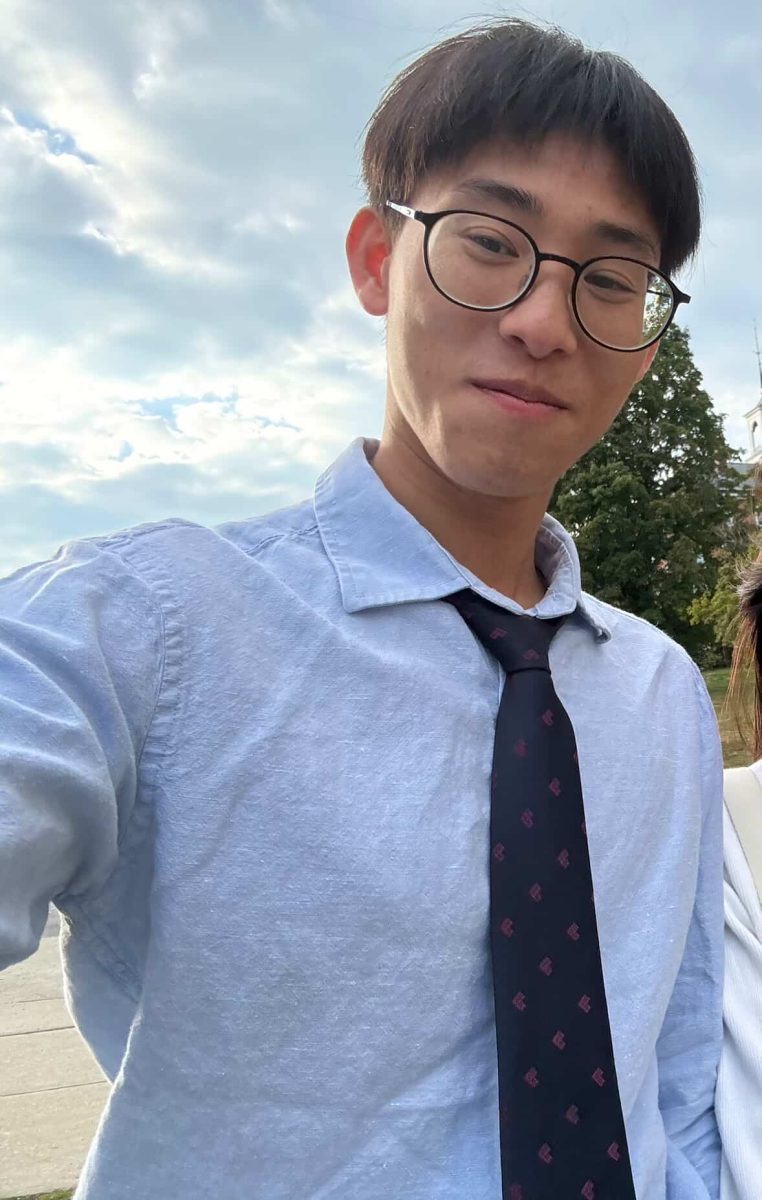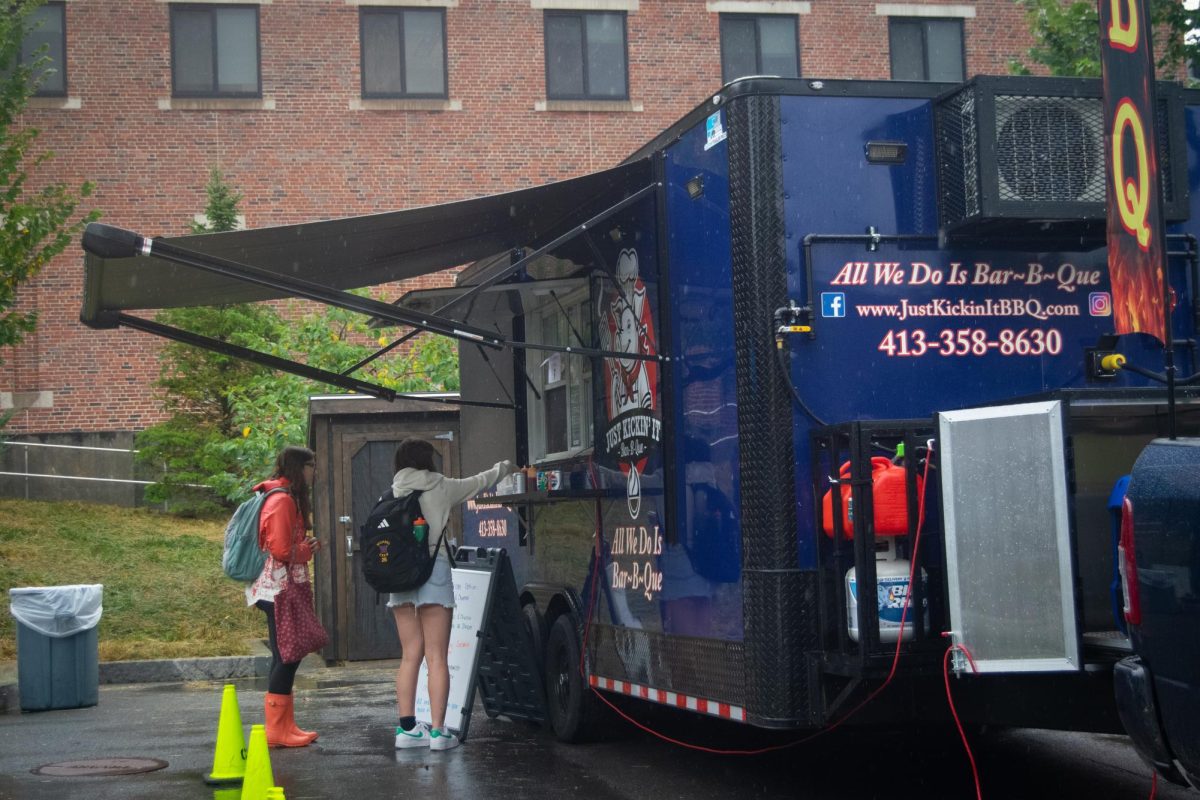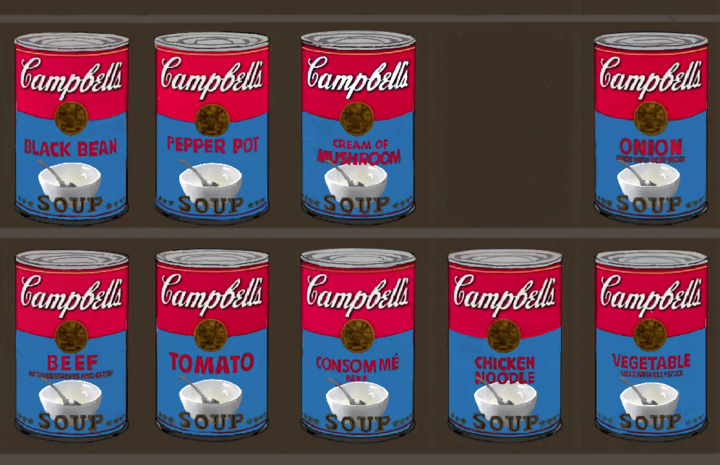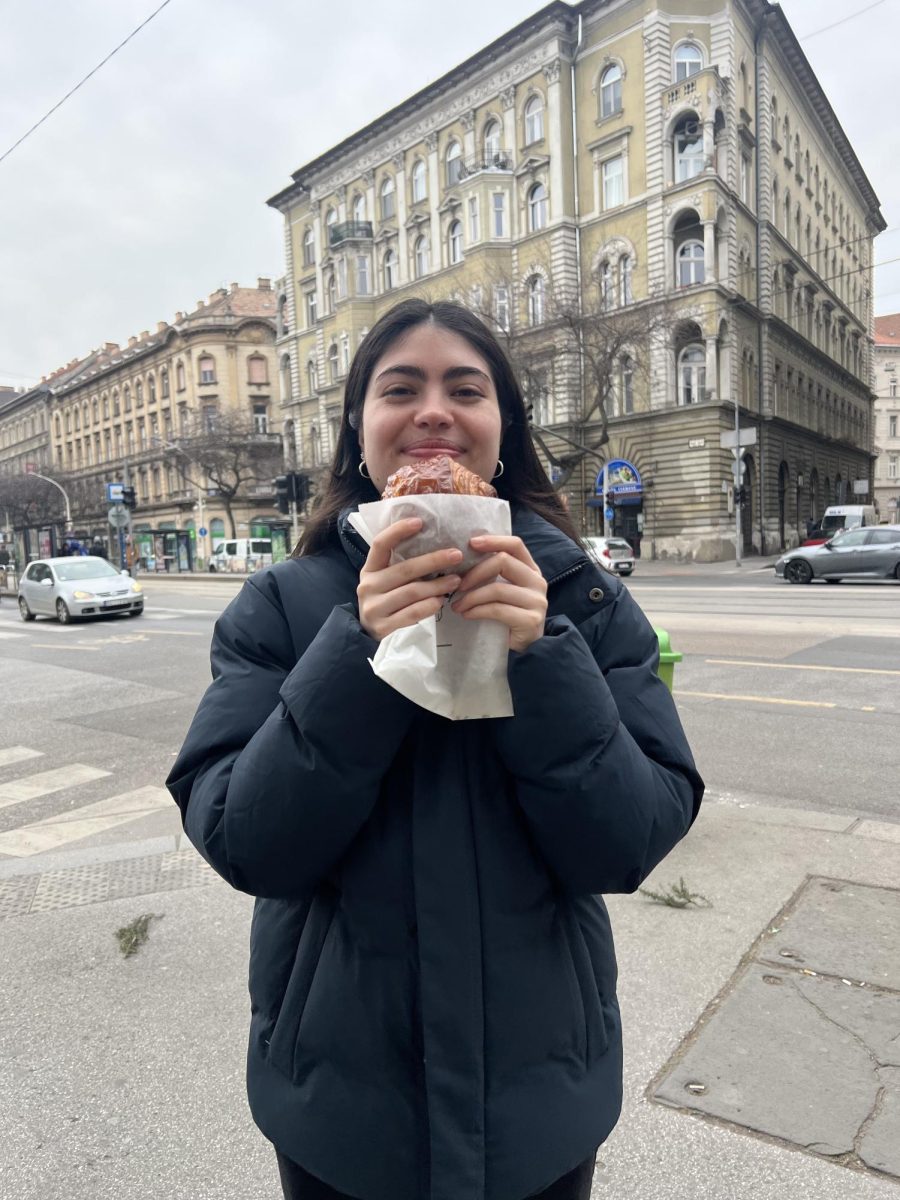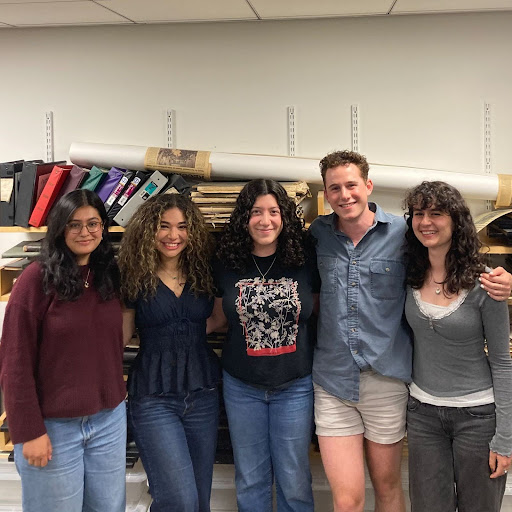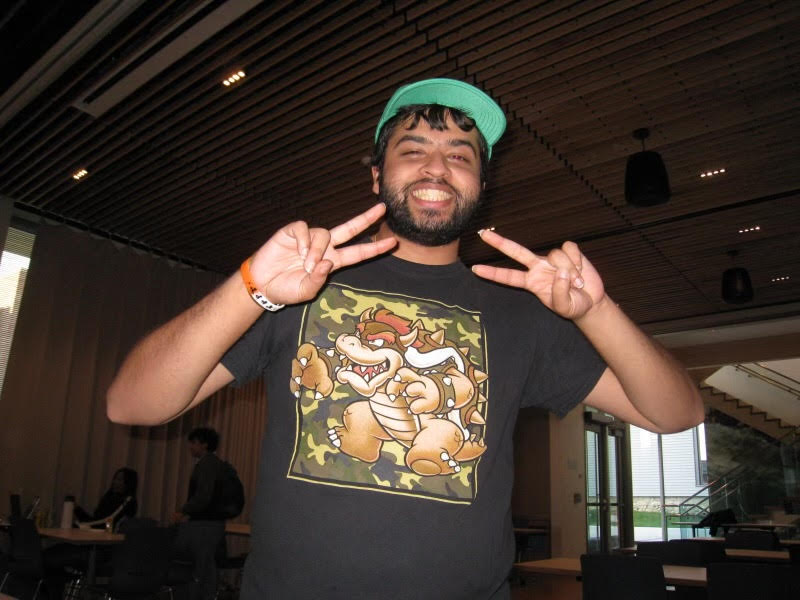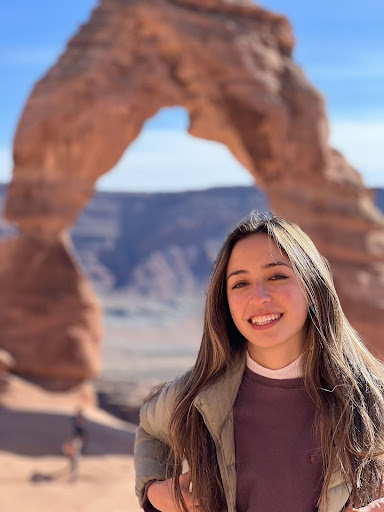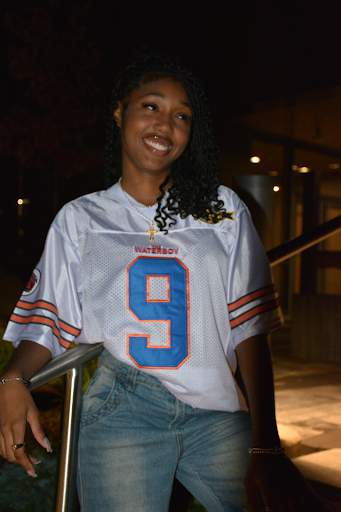
We randomly select unixes from a list of all current students at the College for our weekly One in Two Thousand. So long as the owner of a selected unix is willing to be interviewed and not a member of the Record board, that person becomes the subject of our interview. For this week, the computer (using a very simple script in R) chose Dominique Burgess ’20.
How are you doing during this weird time?
I don’t know how to describe how I’m feeling. It’s just weird. The very first day, when we were at school and got the email that we’d be moving to online, it was really shocking and emotional. I remember feeling this urgency to do all these things and be with everyone for the last time and say “bye” to profs.
I went to my favorite professor’s office, and she had me reflect on my entire Williams career, and it was a lot to come to terms with. It seemed like our whole class was deprived of a huge moment we had been working for. It was really sad, and it dawned on me all at once that a lot of things I was working towards were not going to happen anymore. That is really deeply sad because so many people in my life have sacrificed for my education, and graduation is what your hard work has amounted to. At the time, to have that taken away was a lot to come to terms with.
But since then, I think especially because it is not a Williams-specific thing — the entire class of 2020 has just been derailed, and outside of that, the entire world has been affected by this — every day seems more and more like the apocalypse. Two weeks ago, I said that jokingly, but now it’s like, wait, this might be our reality because when this is over we will be entering a different sort of world. That’s a weird moment to be a part of. It’s weird and sad and uncertain, but at the same time, I’m glad classes started back up to give us some structure. I’m not someone who is learning a new skill during quarantine, but I’ve been cooking more, which is something I like to do.
I’ve sort of been flowing through this time, and I’ve been fortunate not to have anyone close to me affected by this. That’s a very privileged standpoint to be speaking from. Comparatively, I’ve been fine and have just been trying my best to cope with the uncertainty.
You mentioned that you went to see your favorite professor after we received Maud’s email. Who is that, and why are they your favorite?
Nimu Njoya! She is a political theory professor, and I just love her. She is a black woman from Kenya, and she was the first and only professor I went to Lyceum Dinner with. I have never felt more validated or learned more from a professor at Williams. She is just the best. She definitely cold-calls and pushes you in class, and it’s the most scary but rewarding experience to be in her class. She’s definitely the smartest professor I’ve ever sat in a room with, and her classes and discussions are mind-boggling.
It’s great having a black woman be a professor in a very white male-dominated field. Having her in that space was helpful and significant to my experience since a lot of people who look like me don’t gravitate toward [political] theory, and one of the reasons is because of who is going to be teaching your classes. I was very lucky to have her there and be a major part of my experience here. I have taken multiple classes with her and love speaking with her. We’re passionate about many of the same things, including healthcare, and [she] has been a huge part of my Williams experience.
How did you decide on the political science major, and why did you choose to focus on theory?
I don’t like saying poli-sci because people think you’re up-to-date with contemporary American politics, and that’s not me, so I specify that I am a theory concentrator. I took a political philosophy class [in high school], and that changed my life…. But then I took a philosophy class at Williams, and I loved the discussions and readings, but I could not do the writing. I took [International Relations] and a couple of cross-listed theory courses and realized that it was my sort of vibe.
What I like about theory is that it’s basically applied philosophy. You read a lot of the same people, but it’s more tangible applications and examples. It’s not just free-for-all. [Laughs.] Taking [Intro to Political Theory] with Nimu is what really solidified it for me. The way that she framed the course material made it really interesting.
I know you worked at Bloomingdale’s last summer. What did you do there?
I was a buying intern. The buyers are the people who basically own a portion of the business, and that’s their business. For a retailer like Bloomingdale’s, you have a buyer for every department and sub-department, like designer shoes or kitchen appliances. I worked with the home buyer. She is specifically a buyer for crystal, candy, trim, Christmas [appliances] and candles.
I had no idea what I was walking into, but basically, the buyer goes to the showrooms and chooses the assortment for Bloomingdale’s. If you walk into any Bloomingdale’s and see an assortment of candles, the buyer chose that assortment. So you’re the one going to market and negotiating price. If that business is failing, it’s on you; if it’s doing well, it’s on you. You’re basically an entrepreneur.
I had a really good experience at Bloomingdale’s. I really liked the community culture. They’re really dedicated to teaching and training their interns and employees in general. As someone who had no idea about the corporate structure of retail, I learned a lot.
Now I’m really curious. Are you an expert on all things candle and crystal?
I’m an expert on all things china and crystal. I basically worked in the department that catered to the oldest customers, so it was literally like fancy glassware. I had to create a whole crystal, china, silverware and dinnerware training program for the store employees. I learned so much about the most random shit. What 22-year-old knows this much? But it was definitely cool! And working in that department, I got so much free stuff and free candy.
On that note, you mentioned that you have been cooking a lot in quarantine. What have you made?
In an alternate life, or maybe in this life, I will own a restaurant. It’s a passion of mine, and I actually considered going to culinary school in my mind. [Laughs.] I’ve been making everything. I like to create food that I like to eat. It’s not the most healthy, but if I go somewhere and like something, I make it at home.
I’ve done a lot of firsts. For the first time, I made tacos from scratch—carne asada tacos. I made the tortillas and salsa from scratch, and it tasted so good. I was obsessed with the street tacos in L.A., and so I made it at home. I also made honey-glazed salmon, which is really easy, and baked mac-and-cheese. I made brownies today, from scratch. I’ve been making a lot of things from scratch. They don’t have any tortillas in the grocery store, so it’s good to know how to make your own, and it’s just fun. If there’s one benefit to being home all the time, it’s that I’ve gotten to cook.
I know you are quarantining in Queens, but both New York and Jamaica are homes for you. Could you talk about what those places mean to you?
I was raised in Jamaica. I was born in New Rochelle, but my earliest memories are from Jamaica because I went to live with my grandmother there when I was a baby. I lived in Jamaica for eight years, so that is home for me. Both sides of my family are from Jamaica. I’m basically first-generation American, so everything about me is very Jamaican.
I moved to New York when I was eight. I’ve always really strongly identified with my Jamaican identity and culture. A little less so for New York because I lived in New York for elementary and middle school, but I went to boarding school for high school. I also went away for college, so for a lot of the time I was in Massachusetts. I don’t at all rep Massachusetts, though. [Laughs.]
I love New York and I love the city. It is a huge part of who I am, but there’s a lot of strong Jamaican influences. I go back there every year, and a lot of my family is there, so that is going home for me. But New York is where I want to be, where I see myself living for at least a couple of years. They are both my home, you know?
Any final things you would like to say to the Williams community?
I gotta shout out Kofa! My team! Kofa has been my Williams career point-blank period. When I think of Williams, I think of Kofa. Among PoC, Williams is not the ideal place, and Kofa sold the school to me. It is what is comforting about this space, and it defined my time at Williams. Growing up with that team has meant everything to me. There is no bond, there is no family like Kofa.




